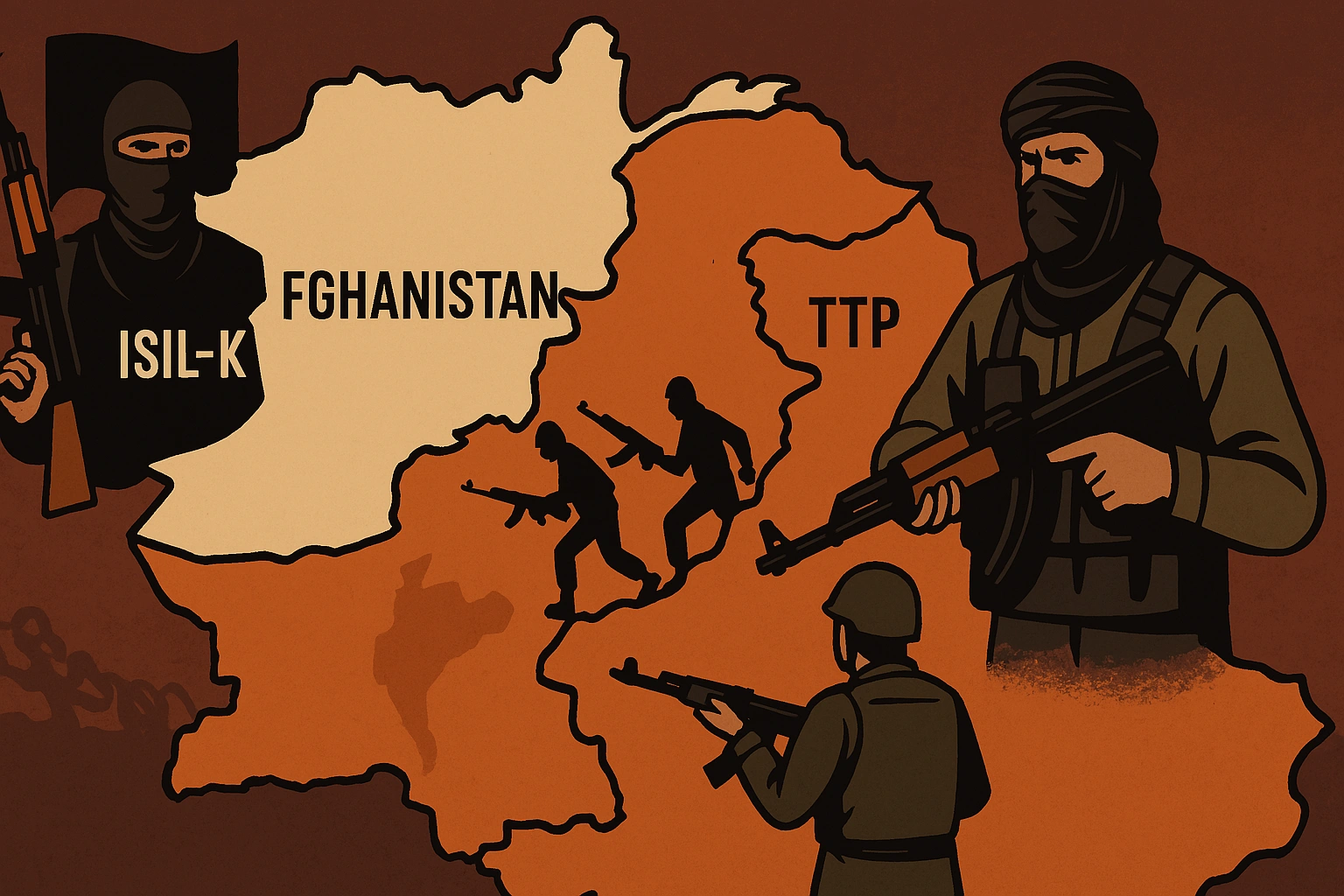A traditional geographical location of Afghanistan makes it a key player in South Asia’s security affairs. The current insecurity in the country has widespread implications for regional security, especially for neighboring Pakistan. Afghanistan continues to shelter several terrorist groups, such as ISIL-K, and TTP, as noted in the UN report of February 2025. Terrorist activities have significant consequences for Pakistan. It is a complex dilemma for both Afghanistan and Pakistan, affecting regional stability.
Following the Taliban takeover in 2021, terrorists such as ISIL-K and TTP have sought to expand their presence in Afghanistan through recruitment, training, and attacks, using Afghanistan as a base of operations. These groups, which have historically focused on Pakistan, continue to operate relatively freely within Afghan territory. The Taliban’s failure to effectively respond to these organizations has exposed Pakistan to the risk of cross-border terrorism.
One of the most urgent issues is the backing given by the TTA to the Tehrik-i-Taliban Pakistan (TTP), which conducted dozens of lethal attacks in the territory of Pakistan. It has been stated in a UN report that the Afghan Taliban has given direct financial assistance to the TTP, such as money given to the family of the TTP leader Noor Wali Masoud. This funding has enabled the TTP to enhance its operational capacities, thus posing more advanced attacks on Pakistan.
Along with TTP, another group that has created a strong presence in Afghanistan is the ISIL-K, which is an affiliate of the international ISIS network. This faction has been using the Afghanistan soil to launch an attack on other countries, especially Pakistan. ISIL-K has been behind a series of high-profile attacks, including on security forces as well as civilians. Failure to challenge the ISIL-K has exposed the region to an increasingly growing menace from this group, which complicates the process of encouraging peace and stability in the area.
The inability of the Afghanistan authorities to control the borders of the nation is one of the crucial problems reducing the stability of the country. This has been contributed by the porous border between Afghanistan and Pakistan, which has made terrorist groups easily cross to Pakistan and attack, causing instability. This inability to control its borders has compelled Pakistan to deal with the menace of terrorism on either side of the border, thus exerting more pressure on its security agencies. The answer is that the fact that Afghanistan has not been able to deal with this cross-border movement of militants, and this has made the situation even worse in the region.
More so, fragmentation and corruption among the Taliban have enabled terrorist communities such as ISIL-K and TTP to proceed effectively in the face of a lack of control. This has been thwarted by the internal politics that the Taliban have been trying to rule themselves as well as the inability to maintain a coherent leadership. Such a state of power vacuum has enabled such groups to flourish and increase their influence not only in Afghanistan but also beyond the border into Pakistan. Failure by the Taliban to control their territory is leading to the bigger issue of the security crisis that is being encountered in both Afghanistan and Pakistan.
The issue has raised alarm among the global community, leading to the recognition that insecurity in Afghanistan has regional and global implications. Afghanistan’s inability to seal its borders and effectively combat terrorism has created conditions where terrorist organizations can grow unchecked. This not only threatens Pakistan’s security but also jeopardizes efforts to stabilize the region overall. There is a need to address the root causes of instability in Afghanistan and encourage greater action from the Taliban against terror groups operating on their territory, with the international community, including neighboring countries, playing a crucial role.
In the case of Pakistan, the violence and terrorism that exist in Afghanistan pose a big security problem to it. Pakistan has been conducting counterterrorist activities to protect its borders for a long time, but continued patronization of such organizations as TTP by certain members of the Taliban has made their tasks more challenging. The fact that terrorist organizations remain persistent in Afghan territory and attack Pakistani territory at an aggravated rate makes the attempts by Pakistan to ensure security in its territory even weaker.
To conclude, the stabilizing role of Afghanistan to the rest of the region cannot be ignored, and its inability to tackle the operations of terrorist groups in its territory has posed tremendous security issues to Pakistan. The fact that the Taliban have not been in a position, or worse, willing to deal with these groups, has exposed Pakistan to cross-border terrorism, making the region unstable. Even as Pakistan should further tighten its counter terrorism initiatives and ensure that its borders are fortified, the international community should also urge a greater response by the Afghan Taliban to weaken terror networks. Cooperation, good governance, and determination in the fight against terrorism are the preconditions to long-term stability to both Afghanistan and Pakistan. It is by banding together that the region will have the slightest chance of surmounting the terrors of terrorism and opening a healthier future.







